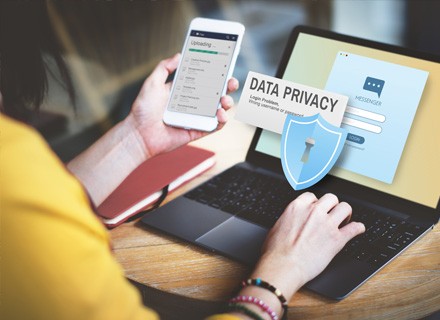Digital technologies are part and parcel of our 21st-century daily lives, and this phenomenon also involves huge online data transfers every hour, minute and second.
Due to the widespread popularity of consumers’ interest in the top VPN services, new rules on the handling, usage and sharing of such sensitive information are being established by governments.
Although they represent a big start, more than new data legislation like the EU General Data Protection Regulation (GDPR) is required. That’s in part due to the growth in cyberattacks. Even home appliances are being targeted by threat actors these days.
Here are the guidelines for being safe online and protecting your anonymity if your data is compromised.
“Data Privacy Day gives us all an opportunity to take a second and think about what we share about ourselves, when and where we share it, and who we are sharing it with,” remarked Vaibhav Antil, CEO of Privado, one of the top free VPN services available.
Spend Some Time Reading The Privacy Policies
Even though there are several examples of firms mishandling users’ data, most consumers still need to take the time to carefully review data privacy rules before consenting to the conditions.
Only 9% of Americans do it, a 2019 Pew Research study found. A survey done by cybersecurity auditing company Deloitte revealed a similar scenario. Over 90% of the respondents acknowledged signing legal terms and conditions without having read them.
These policies are lengthy and complex, thus reading them before availing of tech-related services and applications becomes a strenuous effort for a layman.
However, to correctly manage your digital life, you must know how your data will be handled. Additionally, it will help you choose the services you want to subscribe to more effectively.
Some major internet companies are being pushed to simplify their privacy terms because of the growing demand from customers for greater openness.
In 2020, Apple incorporated privacy badges into its App Store to assist users in making informed judgements. In 2021, Google Play made an identical move.
Use A VPN To Secure Your Online Activity
A VPN, short for virtual private network, is a programme that conceals the location of your IP address. It also encrypts all data exiting your devices through its VPN tunnel simultaneously.
A VPN is a weapon to protect your online anonymity from cyber criminals and the government’s snooping eyes. Using such a tool is crucial when you’re connected to an insecure Wi-Fi network, which is more susceptible to attacks. Additionally essential for securely downloading files from the internet is a torrenting VPN.
In addition to protecting privacy, these security services can improve online performance in many other ways.
Think Of Other Cybersecurity Applications
Your data protection software’s response must be more complex as internet hazards multiply.
We advise combining the usage of a VPN with other security programmes, such as the top antivirus programmes and password manager programmes. Ad-blockers are also necessary if you want to maintain your privacy online.
The good news is that you no longer require a wide variety of memberships. That’s because more and more vendors now supply complete security suites.
For instance, the VPN software from NordVPN and ExpressVPN both have built-in password managers and ad blockers. At the same time, Surfshark One offers four cybersecurity technologies as part of its comprehensive protection package for a single subscription.

